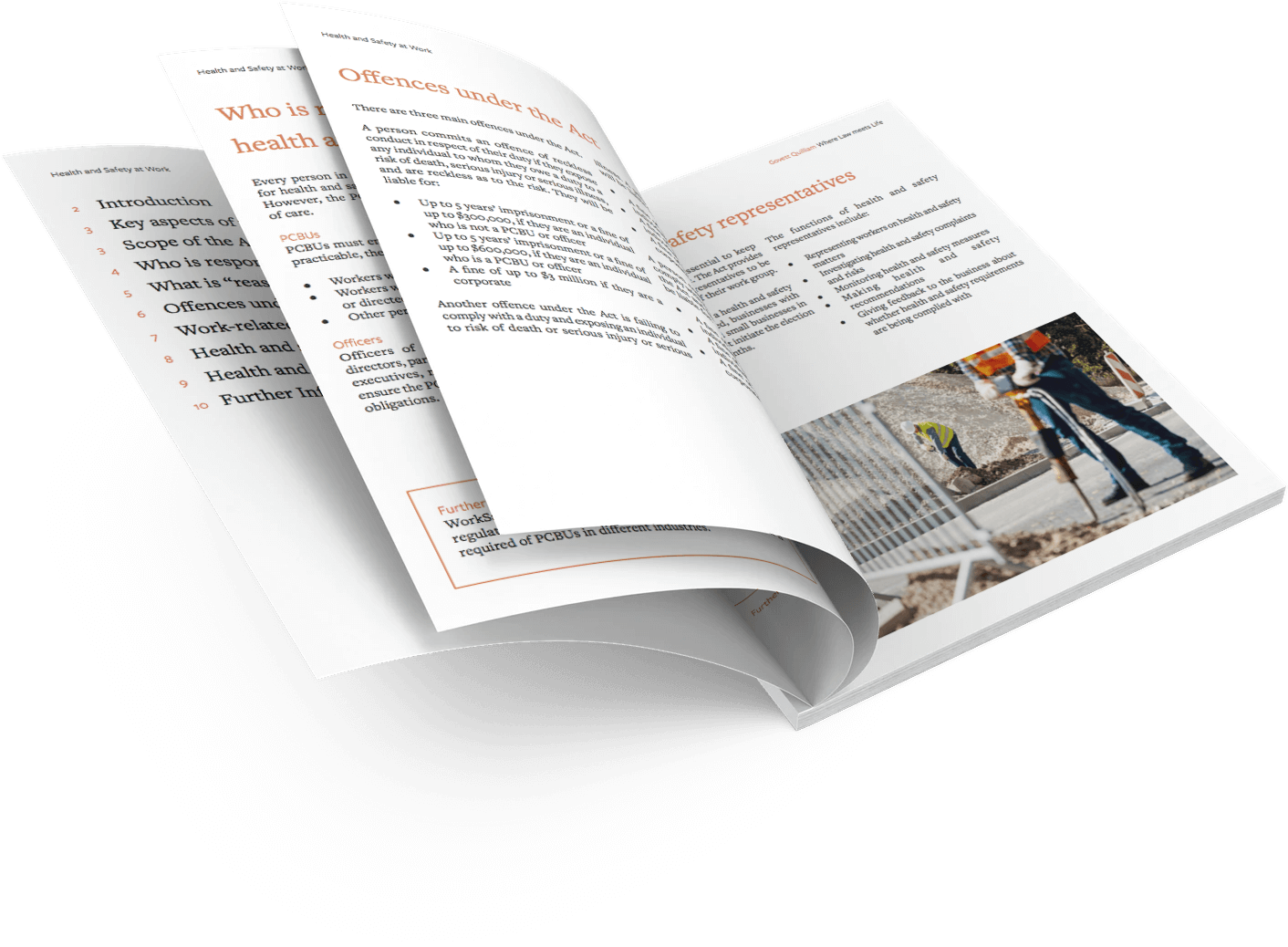
The Government has proposed new changes to commercial leases under the COVID-19 Response (Management Measures) Legislation Bill, to further support COVID-19 impacted businesses and tenants.
The Government states that these changes are to “support commercial tenants and landlords to come to agreements to adjust the rent (including outgoings) due under their leases, so that the parties share the financial burden of the COVID-19 response, enabling more businesses to remain solvent through the COVID-19 epidemic.”
The Bill proposes to amend the Property Law Act 2007, so that a new implied clause be inserted into all leases from 28 September 2021 stating that in the event of an “epidemic”, where the tenant is unable to gain access to all or part of the leased premises, the landlord and the tenant are to agree to a “fair proportion” of the rent and outgoings to be reduced.
This implied covenant only applies where a no access clause is not already in place so this will likely not affect landlords and tenants who use the standard ADLS Leases where clause 27.5 is included. Most leases will be unlikely to be affected. If in doubt, we suggest that you check in with us.
The implied covenant may be negatived, varied, or extended by express terms of the lease, by a written memorandum executed by the parties to the lease and in the same way as the lease, or for a short-term lease not made in writing by the express or implied terms of the parties. However, for leases which are currently operating, this places the burden on the landlord as the tenant will have the upper hand in negotiating a variation due to the lease already existing, and the implied term being automatically applied.
The Government does not provided guidance as to how a fair proportion is to be determined which is likely to cause issues in leases where the parties did not have a chance to negotiate this point prior to entering the lease. It is surprising to us that the Government has not taken the time to provide guidance around how to determine a fair proportion as this will clearly lead to disputes where the landlord and tenant cannot agree.
If the parties cannot agree on the fair proportion of rent, the new implied clause states that the parties will resolve through arbitration (or another agreed dispute resolution process) which can be drawn out and take a considerable amount of time. This reiterates the importance of considering the dispute process in any deed or agreement you might enter to ensure a process that works for you is clearly set out. We are recommending to clients that they take a consistent approach to the agreements reached earlier in Alert Level 4 and 3 and that this amendment might not change that.
While likely welcomed by tenants, this change raises several issues for landlords. The landlord will likely still have the same outgoings to pay for the building if they have a mortgage so a reduction in the rent or any dispute might be enough to force the landlord to default on their mortgage or other outgoings. There is also no qualification on the type of tenant this applies to, and the tenant may be in a stronger financial position than the landlord in some cases but will still be entitled to a rent reduction of a “fair proportion”, whatever that might be.
Author: Cameron Hart






.png)

